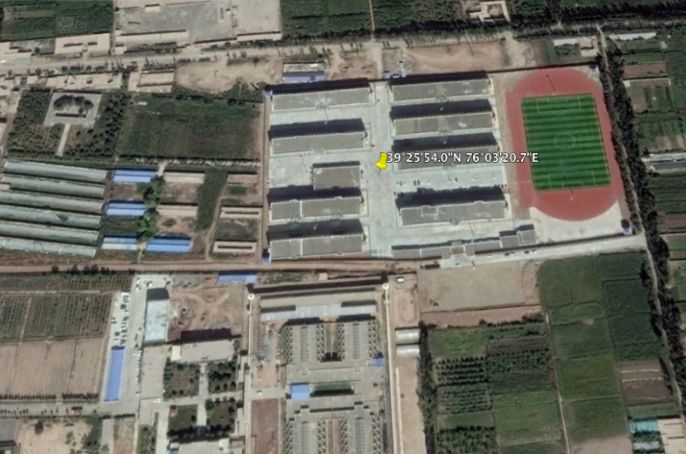In late January 2016, the Tibetan language advocate Tashi Wangchuk disappeared. Like so many Tibetans before and since, he simply vanished without a trace – his distraught family were left to ponder his fate.
Two months earlier, Tashi had featured in a New York Times documentary film and article in which he had outlined his fears for the long-term survival of Tibetan culture and language and his concerns that under Chinese rule the next generation of Tibetans might grow up unable to speak their mother tongue. He could have chosen to do so anonymously, but Tashi insisted on speaking to the journalists on the record. He wanted to speak to the world about Tibet.

It was not until March 2016, nearly two months later, when his family learned what they must have already feared. People who speak out in Tibet are made to disappear. Tashi had been detained by Chinese security services, tortured and eventually charged with “inciting separatism.” He remained in detention for over two years, cut off from his family and his lawyers, his condition unknown. In May this year, he was sentenced to five years in prison. Only last week, his appeal was thrown out. There is no evidence that Tashi Wangchuk ever committed a crime.

Today marks the International Day of the Disappeared, which recognises the suffering created by enforced disappearances, both for the person who has been seized and for the families, friends and communities that are left behind. Our planet may be more interconnected than ever, but this grim reality nevertheless persists for many people around the world, including hundreds of Tibetans. People can still vanish in our increasingly small world.
Tibetans and Uyghurs who defend their culture, Chinese dissidents and activists in Hong Kong are all at risk under Chinese Communist Party rule. Official state figures reveal a conviction rate of 99.93 percent; of the 1.16 million people placed on trial last year, Chinese courts returned a guilty verdict for all but 825 of them.
Like Tashi Wangchuk, many of these people will have never have committed a recognisable crime. His charge, “inciting separatism”, is one of a number of catch-all “state security crimes” contained in the Chinese penal code. Under the pretext of state security, Tibetans have been punished for a range of activities, from taking part in a protest to flying the prohibited Tibetan national flag, to talking to foreign media about the threats posed to Tibetans’ way of life. Tibetans have been snatched by police and security forces, imprisoned and tortured for ‘crimes’ as simple as sending emails to people outside the country about human rights, wishing the Dalai Lama a happy birthday and singing songs that celebrate Tibetan culture.

Sentences for state security crimes can be long: In January 2015, a Tibetan monk named Thardhod Gyaltsen was sentenced to 18 years in prison after a police raid allegedly found him to be in possession of images and recordings of the Dalai Lama.
When an individual is seized on the grounds of state security, any semblance of human rights or due process goes missing too. Suspects will generally be held in a secret location where, away from the eyes of the world, they are at high risk of torture. Ill-treatment may be expressly forbidden under international and Chinese law, but under CCP rule, the only people likely to be punished for it are the suspects, whose forced confessions are still used as evidence in court. In 2014 the United Nations Committee on Torture criticised China for continuing to permit this practice and the same Committee noted that detention and prison has cost several Tibetans their lives. Tenzin Namgyal, a former prisoner and torture survivor, recalled that his captors had told him: “However many people like you we kill, nobody would ever find out”
These prisons and detention centres are dotted across Tibet, a vast network where at least 2,000 Tibetan political prisoners are being held. Those in detention may also be held in houses, hostels and hotels which act as ‘black jail’ sites used to punish and extract confessions.
Official CCP responses have flatly denied the mistreatment of prisoners among the people that it rules over, including Tibetans and Uighurs. This policy of denial comes despite serious concerns expressed earlier this month by the United Nations’ Committee on the Elimination of Racial Discrimination (CERD) over the internment of over a million Uyghurs in political camps and the deaths of Tibetans in prison such as Tenzin Delek Rinpoche in 2015.

Despite the suffering caused to Tibetans like Tashi Wangchuk and his family, there are reasons for hope. The five-year sentence he received is five years too long, but comparatively lenient for a state security crime. This is likely to be a result of the massive international attention and pressure generated by Tibet supporters and human rights organisations, who made it clear that even while Tashi Wangchuk may have been hidden, he was not forgotten. Former Tibetan prisoners, such as the monk and human rights defender Golog Jigme, have spoken about the international support that they received while they were in prison, how it filtered through to them and strengthened their resolve.
For this reason, organisations like Free Tibet have made it their mission to push for China to reveal the location of the detainees and prisoners it is hiding and to release them. It is a difficult goal requiring months, maybe years of work, but the concessions which may be granted – an early release, a family visit, improved treatment in prison – can make a tangible difference. Today is a day to mark the trauma caused by enforced disappearances, but also the work being done to bring an end to this cruel practice.
